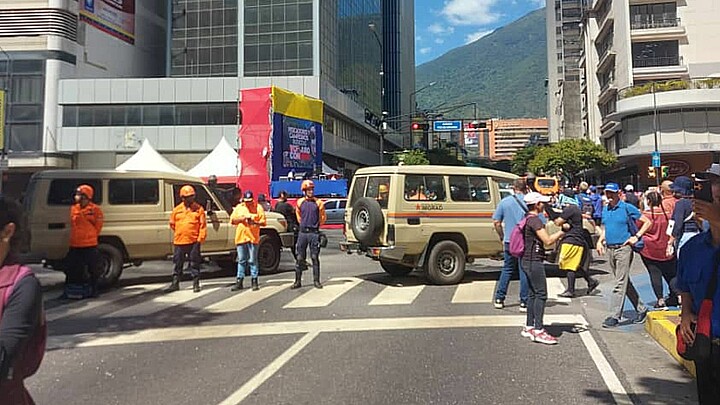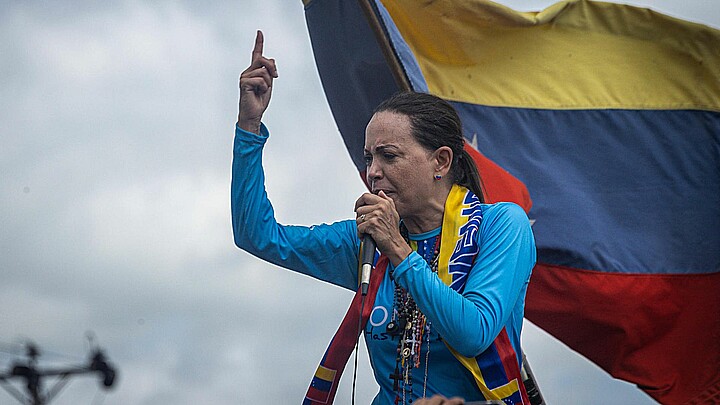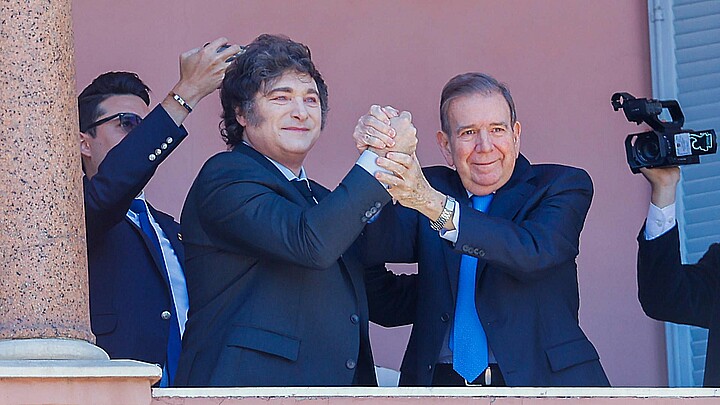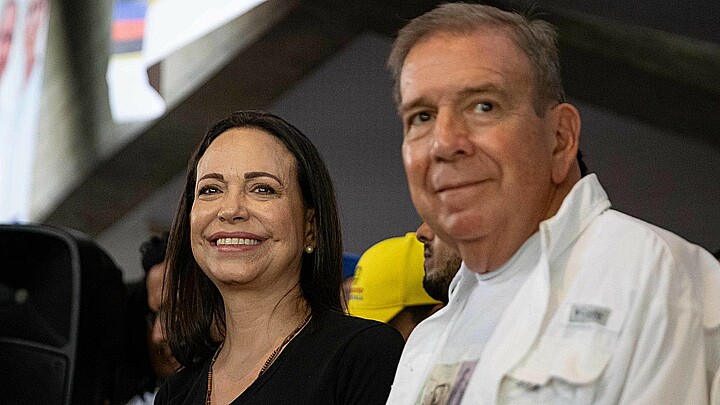Politics
Maduro's ambassador to Iran praises 1979 Islamic Revolution, calls for increased cooperation
"We in Latin America have enormous respect for the Islamic Revolution, the Iranian people, and the Iranian leadership, who have set a magnificent example for us," Ambassador Alcala Cordones said before highlighting that the socialist regimes in Cuba and Venezuela share a common resistance and rejection to U.S. imperialism with Iran.
February 14, 2022 11:59am
Updated: February 14, 2022 4:41pm
Earlier this year, new study from The Center for a Secure Free Society (SFS) warned that “a new socialist, authoritarian wave is rising in the region in 2022” and that “Russia, Iran, and China are capitalizing on these new opportunities.”
Although growing closeness between the two regimes can be seen through Iran’s sale of weaponized unmanned aerial vehicles to Venezuela or its sanctions-defying sale of condensate oil to Caracas in order to help boost oil production, recent comments made by Venezuela’s ambassador to Iran have really put the relationship in focus.
On Saturday, Venezuela’s top diplomat in Tehran, Ambassador Carlos Antonio Alcala Cordones, told the Tehran Times that the 1979 Islamic Revolution had a significant, positive impact on Venezuela and the world.
"We in Latin America have enormous respect for the Islamic Revolution, the Iranian people, and the Iranian leadership, who have set a magnificent example for us," Alcala Cordones said before highlighting that the socialist regimes in Cuba and Venezuela share a common resistance and rejection to U.S. imperialism with Iran.
"These policies are opposed by the Islamic Revolution [in Iran], the Cuban Revolution, and the Venezuelan Bolivarian Revolution," he added.
Cardones also recognized other parallels between the Iranian and Venezuelan revolutions, noting that both regimes have stood against leading Western powers such as the U.S. and Israel – while also respecting the democratic election process.
In recent years, Iran has provided economic and military aid to Venezuela — while also helping Caracas form Popular Mobilization Units (PMUs), a complex aggregation of militias which have historically helped Iran project influence in Iraq and Syria. However, analysts from SFS believe this could just be a jumping off point for a more serious international operation.
“Ultimately, the Iranians have marked out Venezuela as a potential base for some sort of activity against the U.S. in the future,” Maj. Tal Beeri, head of the research department at the defense watchdog located in northern Israel, noted. “Even if they do not actually act from it, in Iran’s strategic view, merely having a presence there is a threat to the U.S.”
This warning is especially alarming considering the ambassador’s call for the formation of “a bloc comprised of Iran, Venezuela, Russia, China, and other states against whom sanctions have been placed.
"One measure that can assist us in confronting the United States and its allies is to unite, share experience and information, socialize, and build a bloc among sanctioned countries... We must unify financially, economically, socially, and culturally in the face of American imperialism, as well as via art, sports, science, and technology," he stated.
"If such a bloc is formed, Iran, Venezuela, Russia, China, and others will be able to help one another against their shared enemy, the White House."
The Venezuelan ambassador also took time to praise General Qassem Soleimani -- who was killed by a U.S. drone strike near Baghdad International Airport in January 2020 – saying the controversial figure was “a symbol of devotion and sacrifice for the motherland, government, and sovereignty of Iran, as well as a great example to be followed.”










